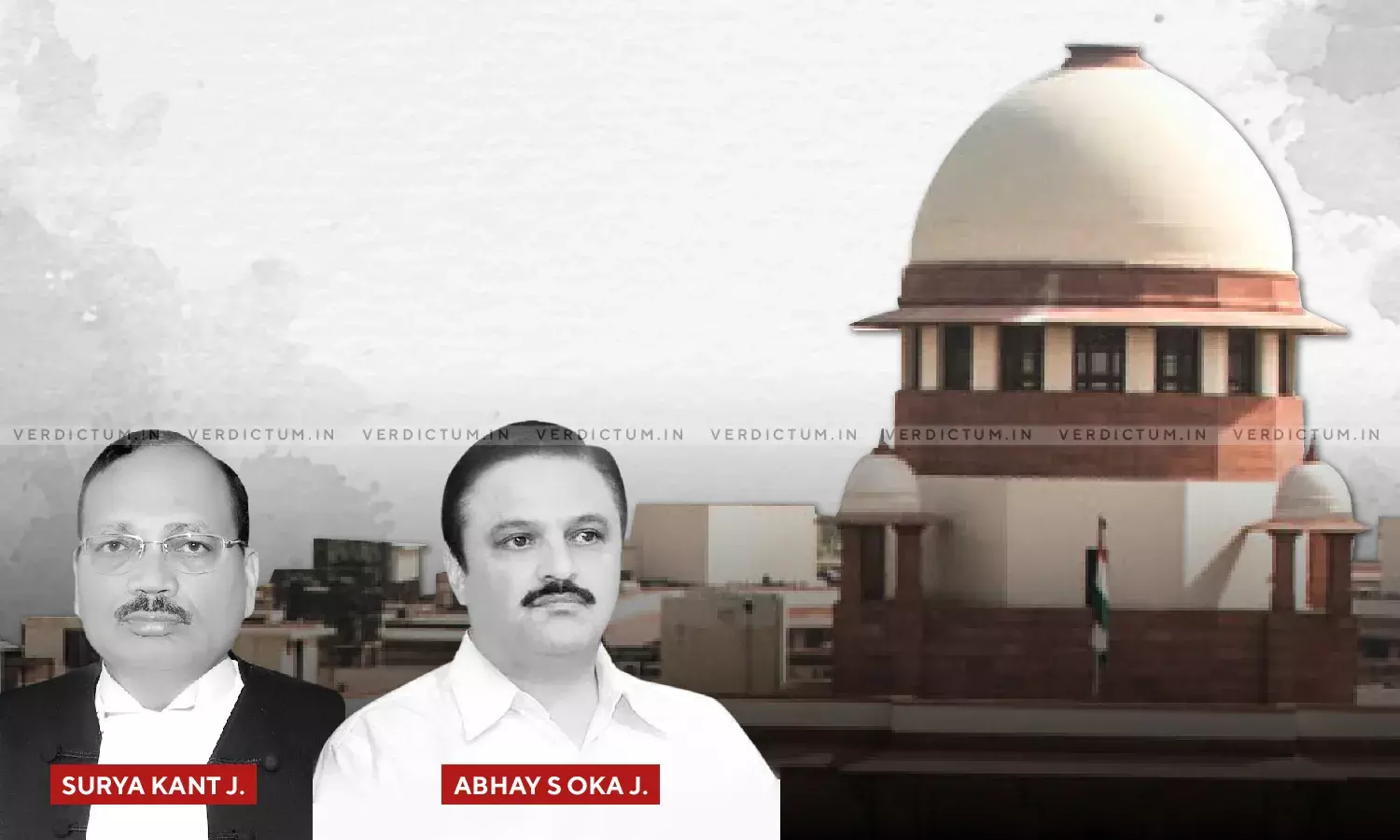When Public Interest Is Clearly Articulated And Urgent, Private Interest Must Give Away – SC In Land Acquisition Case

While adjudicating upon a land acquisition case, the Supreme Court has observed that when the public interest is clearly articulated and is an urgent and pressing exigency, private interests must give away.
The Bench of Justice Surya Kant and Justice Abhay S. Oka observed –
"When the public interest is so clearly articulated and is an urgent and pressing exigency, private interests must give way to the extent required."
The Court held that such an assertion has previously been acknowledged in the case of Ramilila Maidan Incident v. Home Secretary, Union of India & Ors.
While emphasizing the importance to protect individual interests, the Bench further also observed that in a democratic society governed by the rule of law, the rights of an individual carry immense importance and are the foundational blocks on which our legal, social, and political milieu thrives. In this context, the Court additionally held –
"Under no circumstances should the rights of individual citizens be trodden upon arbitrarily and any curtailment of them must be scrutinized with utmost care."
However, the Court also held that at the same time, the Court must not lose sight of the fact that in several situations, the needs of the many must outweigh that of the few.
Senior Counsels Shyam Divan and V. Giri appeared for the Appellants while Counsel Girish Godbole appeared for Respondents 2 and 3, Senior Counsel Shekhar Naphade appeared for Respondents 6 to 9, and Counsel S.C. Dharamadhikari appeared for Respondents 4 and 5 before the Apex Court.
In this case, the Appellants – Private Individuals who had title over the land had resisted the construction of a road proposed initially in the Development Plan of Mumbai in 1976 through their land from the Mahakali Caves the Central MIDC to avoid traffic congestion.
The Appellants had approached the Apex Court and sought quashing of the resolution of the proposed construction of the road through their property.
The Court noted, "It is important for us to take stock of the nature of the present dispute. The Appellants are private citizens who have valid title and ownership over the land in question. Without doubt, their personal and private rights are of great importance. In a democratic society governed by the rule of law, the rights of an individual carry immense importance and are the foundational blocks on which our legal, social, and political milieu thrives. Under no circumstances should the rights of individual citizens be trodden upon arbitrarily and any curtailment of them must be scrutinized with utmost care."
Further, the Bench also held, "At the same time, we must not lose sight of the fact that in several situations, the needs of the many must outweigh that of the few. We say so not with any fervour nor as a mantra, but as a solemn acknowledgment of the realities of modern life. The question of what constitutes "public iinterest" has been contemplated upon multiple times and the history of this Court is full of musings by different benches on the exact contours of this phrase in the context of various situations and statutes."
The Court also held that the proposition is simply that the notion of public interest will necessarily reflect the specificities of the situation. In this case, the public interest which has been emphasized by Respondents is the urgent need for the creation of a connecting road through the Appellants' property. The need stems from the traffic congestion caused on the route from the Mahakali Caves to the Central MIDC. The lack of a direct linkage requires detours to be taken that significantly increase commuting time and cause inconvenience to the general public.
The Court held, "With these considerations in mind, we deem the present case to be an appropriate instance where public interest must have paramountcy over private interest. We emphasize once again before parting that the rights of the individual must only be watered down when the necessary circumstances demanding such a drastic measure exist."
The Bench observed that the Municipal Corporation of Bombay validly exercised its powers under Mumbai Municipal Corporation (MMC) Act to direct the acquisition of the land of private individuals.
Accordingly, the Court dismissed the appeals holding that the powers under the MMC Act remain intact even in cases where they cover a subject that is also provided for in the MRTP Act.
Cause Title - Dr. Abraham Patani of Mumbai & Anr. v. The State of Maharashtra & Ors.
Click here to read/download the Judgment

